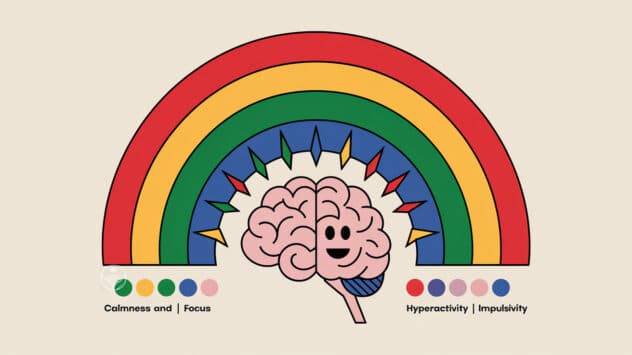Cinnamon’s active compounds, particularly cinnamaldehyde, support brain health by enhancing dopamine function, reducing neuroinflammation, and promoting cognitive benefits essential for managing ADHD symptoms. The connection between cinnamon and ADHD lies in its ability to regulate dopamine levels, which may improve focus, attention, and impulse control. As a natural option for ADHD management, cinnamon offers neuroprotective and cognitive-enhancing effects; however, safe use involves proper dosing and selecting Ceylon cinnamon over Cassia for long-term benefits.
How Cinnamon Impacts Brain Function: The Science
Cinnamon is known for its cognitive benefits, especially in brain function. It improves brain clarity by positively influencing neurotransmitters, particularly dopamine, which is important for motivation and attention. Cinnamon health benefits include reduced neuroinflammation, which helps protect against cognitive loss, making it an important natural tool for brain health.

Cognitive Benefits of Cinnamon for ADHD
- Boosts cognitive ability by interacting with neurotransmitters like dopamine
Cinnamon enhances cognitive function by influencing dopamine, essential for attention, learning, and motivation. Its capacity to control dopamine levels may aid in improving concentration, a significant issue in ADHD. - Regulates dopamine levels, improving focus and concentration
Dopamine dysregulation is a prevalent problem in ADHD, affecting concentration and impulse control. Cinnamon’s active compounds, like cinnamaldehyde and eugenol, impact dopamine. Cinnamon’s capacity to improve dopamine function makes it a potentially natural treatment for ADHD symptoms. - Reduces neuroinflammation, helping protect against cognitive decline
Cinnamon’s anti-inflammatory qualities, particularly those found in chemicals such as cinnamaldehyde and epicatechin, can help decrease neuroinflammation, which has been associated with cognitive impairment. Chronic inflammation can impair memory and learning, but cinnamon’s active components help to reduce inflammation and promote long-term brain health. - Promotes neuronal plasticity for enhanced memory retention and learning
Cinnamon includes chemicals that may promote neural plasticity, the brain’s ability to establish and reconfigure synaptic connections, which is necessary for memory retention and adaptation in learning. This adaptability benefits those with ADHD, who often struggle with focus. - Improves attention and working memory
According to research, the fragrance of cinnamon may improve attention and working memory, which can help with mental performance in activities that demand prolonged focus. This sensory stimulation may be useful in circumstances that need extended periods of attention, such as studying or a professional job.
Cinnamon’s Effect on Neurotransmitters
Cinnamon has a significant influence on dopamine, which is essential for cognitive activities such as attention, motivation, and reward processing. Cinnamon has been proven to alter dopamine production and function, making it a possible natural aid in ADHD control.
Cinnamon’s neuroprotective qualities help to preserve neurotransmitter homeostasis. It lowers oxidative stress and inflammation in the brain, which can disrupt dopamine transmission. Cinnamon supports cognitive function by enhancing dopamine synthesis. This makes it a viable natural choice for people who want to treat ADHD symptoms without relying only on prescription drugs.
Does Cinnamon Help with ADHD Symptoms?
Current research suggests that cinnamon may have the ability to alleviate ADHD symptoms, notably by improving attention and decreasing hyperactivity. One study found that cinnamon’s active components, such as cinnamaldehyde, might lower neuroinflammation and oxidative stress, both of which impair brain function in ADHD.
Furthermore, some studies show that cinnamon may serve as a moderate stimulant, promoting cognitive arousal and alertness without the adverse effects associated with prescription stimulants such as methylphenidate (often used in ADHD therapy). While these findings are encouraging, they are preliminary, and larger-scale research is needed to validate cinnamon’s usefulness in treating ADHD symptoms.
How to Use Cinnamon Safely for ADHD
When contemplating cinnamon for ADHD, it is critical to utilize the proper amount to avoid any potential adverse effects. A typical cinnamon ADHD dose varies from 1 to 6 grams per day; however, beginning with a lesser quantity is recommended to assess tolerance. While cinnamon is typically harmless, excessive use might have negative effects on ADHD control, such as liver inflammation, owing to the high coumarin concentration.
Recommended Cinnamon Dosage for ADHD Support
Understanding the right amount is critical for individuals who want to utilize cinnamon as a natural ADHD treatment. The suggested cinnamon ADHD dose ranges between 1 and 6 grams per day. Individuals can check their tolerance by starting with a lesser dose, roughly 1 to 2 grams per day, and progressively increasing it. This quantity can be ingested by incorporating cinnamon into food, drinks, or supplements, according to personal choice.
Ceylon cinnamon, also known as “true cinnamon,” should not be confused with Cassia cinnamon. Cassia includes a greater concentration of coumarin, a chemical that, in large quantities, can induce liver damage. For this reason, Ceylon cinnamon is often favored for long-term usage because it contains substantially less coumarin. The cinnamon dose for ADHD should be kept within acceptable limits to minimize unwanted negative effects.
Although cinnamon is typically safe, anyone with specific medical problems, such as liver disease, should contact their doctor before using it on a regular basis. Balancing the appropriate dosage with safety precautions enables efficient ADHD control with cinnamon as a natural medication.
| Type of Cinnamon | Recommended Dose | Risks |
| Ceylon Cinnamon | 1-6 grams/day | Minimal risk, but consult a doctor for long-term use. |
| Cassia Cinnamon | 1-3 grams/day | Contains coumarin; excessive use can harm the liver. |
Practical Tips To Incorporate Cinnamon Into Your Daily Routine
- Enhance Beverages: Add a pinch of Ceylon cinnamon to coffee, herbal teas, or smoothies for a subtle cognitive boost.
- Food Pairings: Sprinkle on oatmeal, yogurt, or mix with omega-3-rich foods like flaxseed to maximize cognitive benefits.
Are There Any Risks or Side Effects of Cinnamon?
While cinnamon is generally regarded as safe when taken in moderation, there are certain adverse effects to be aware of, particularly when ingested in excessive quantities.
One of the main problems is the presence of coumarin in Cassia cinnamon, which can cause liver damage if used in large doses over time. For this reason, Ceylon cinnamon is advised, as it has significantly lower quantities of coumarin, especially for people who want to take cinnamon on a regular basis, such as in ADHD control.
Cinnamon side effects might include allergic responses like skin irritation or mouth sores, especially when taken topically or in excessive doses. Furthermore, taking too much cinnamon may cause gastrointestinal disorders such as nausea or stomach pain. People with liver issues should be cautious, as cinnamon’s coumarin may exacerbate problems.
Individuals taking cinnamon as part of ADHD management must maintain a balanced and careful approach. Cinnamon safety guidelines for ADHD recommend limiting daily intake to 1-6 grams, especially with Cassia cinnamon, to avoid coumarin toxicity. Additionally, it is essential to consult a healthcare provider before starting regular cinnamon supplementation. This is particularly important if you have underlying health issues or take medications, as cinnamon may interact with some drugs, such as blood thinners.
Safe cinnamon use means choosing Ceylon, following dosage guidelines, and monitoring effects.
FAQs About Cinnamon and ADHD
What Does Cinnamon Do for ADHD?
Cinnamon may aid with ADHD by enhancing concentration and attention via dopamine modulation, thereby alleviating symptoms such as inattention and impulsivity.
Does Cinnamon Affect Dopamine Levels?
Yes, cinnamon can boost dopamine levels, which aids in the regulation of mood, motivation, and concentration, making it very useful for those with ADHD.
Is Cinnamon a Brain Booster?
Yes, cinnamon is known as a brain booster because of its neuroprotective effects, capacity to improve cognitive function, and support for neurotransmitter balance, notably dopamine.
Does Cinnamon Increase Serotonin?
There is no evidence that cinnamon directly raises serotonin, although its effect on dopamine may indirectly aid general mood management.
Conclusion: Can Cinnamon Be a Natural Aid for ADHD?
Cinnamon may indeed provide significant ADHD advantages by improving concentration and brain function; however, it should be viewed as a complement to existing ADHD therapies rather than as a substitute. While its natural characteristics can effectively supplement prescription drugs and behavioral methods, ADHD frequently necessitates a multifaceted strategy tailored to each individual’s specific circumstances. Thus, you can incorporate cinnamon and other natural ADHD therapies as part of a larger management strategy; however, outcomes vary, so it’s important to consult a healthcare expert to determine the best course of action. Working closely with a medical physician ensures that cinnamon and other natural options are safely and effectively integrated into a comprehensive treatment approach that thoroughly addresses the complexities of ADHD.
Disclaimer:
While cinnamon may offer supportive benefits for managing ADHD, it is crucial to consult with a healthcare professional before incorporating it into your treatment plan. Individual needs and responses vary, and only a qualified provider can help ensure cinnamon or any supplement aligns safely and effectively with your overall ADHD management strategy.


















